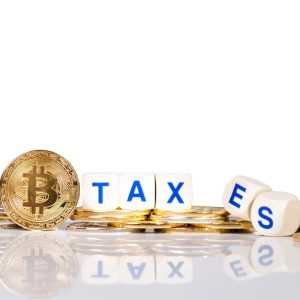Latest Posts
40% surge in UK crypto ownership spurs HMRC crackdown: What You Need to Know
Read MoreHow the political shifts in 2024 could reshape crypto tax policies in 2025
Read MoreGary Gensler steps down as SEC Chair – what’s next for crypto?
Read MoreUK plans to integrate crypto into finance
Read MoreWhat Trump’s win could mean for crypto
Read MoreContent
- What is HMRC’s new crackdown on crypto assets?
- What are crypto and digital assets, and why is HMRC watching?
- How are virtual currencies being taxed currently?
- Why accurate reporting of cryptocurrency is so important
- How are financial institutions and central banks playing a part in the crypto industry?
- Join Crypto Tax Degens for ultimate control over your crypto taxes
With crypto assets now a major part of the financial world, UK tax authorities have taken notice. HM Revenue and Customs (HMRC) is ramping up efforts to collect taxes on crypto profits, prevent money laundering, and maintain financial stability.
Here’s what the crypto tax crackdown means for UK investors – and how to stay compliant while keeping your gains intact.
Fast facts
- The UK government wants its share of crypto profits, so get ready for stricter rules and anti-money laundering checks.
- In the UK, crypto income and gains are taxed just like other investments, so you’ll need to track each transaction’s value.
- Avoid headaches and penalties by keeping good records, understanding your tax obligations, and getting advice when needed.
What is HMRC’s new crackdown on crypto assets?
Given how decentralised they are, digital currencies have long been linked to money laundering and fraud risks. To address this, the UK has rolled out new anti-money laundering (AML) regulations that apply directly to the crypto space, including strict Know Your Customer (KYC) standards.
How will this affect crypto exchanges and holders?
AML rules now require UK crypto exchanges to verify users’ identities and monitor transactions for signs of illegal activity.
This involves Know Your Customer (KYC) protocols, where exchanges must double-check users’ identities to prevent illegal activity and comply with AML standards. Additionally, large or unusual transactions may be flagged or reported to authorities for further review.
If you’re a typical crypto investor, this probably means dealing with stricter ID checks on crypto exchanges and extra scrutiny for bigger transactions. These rules aim to prevent fraud but could also make it more complicated for everyday users to trade or interact with crypto platforms.
What are crypto and digital assets, and why is HMRC watching?
To understand HMRC’s recent crackdown, it helps to know what qualifies as a “crypto asset” and why it’s on the radar.
Crypto assets refer to digital items with real-world value, including cryptocurrencies like Bitcoin, Ethereum, and DeFi tokens. Although these assets aren’t legal tender, they’re increasingly treated as valuable financial assets with tax implications.
HMRC and other regulatory bodies have recognised that digital currencies are now part of the mainstream financial system and demand the same attention as traditional investments.
This means HMRC is closely watching the cryptocurrency industry – from large exchanges to decentralised finance (DeFi) platforms. As crypto blends more with traditional finance, the UK government wants to make sure crypto isn’t a tax-free zone and that it contributes fairly to the tax pool.
How are virtual currencies being taxed currently?
Once you understand what’s being targeted in the crypto market, you should understand how these digital assets are taxed. In the UK, investments in virtual currencies generally fall under either Income Tax or Capital Gains Tax (CGT), depending on how you’re involved with them. Here’s how it breaks down:
- Income Tax – If you’re earning crypto through activities like staking, mining, or high-frequency trading, those earnings are likely subject to Income Tax.
- Capital Gains Tax (CGT) – For those who sell or trade digital assets at a profit, CGT generally applies – similar to stocks or other investments.
If your earnings exceed HMRC’s reporting threshold, you’ll need to declare them on your tax return. Given the high volatility of digital assets like cryptocurrency – and how tricky it is to value it accurately, you might need to consult with a crypto tax advisor to help you understand how fair market value impacts your tax liability.
If you’re finding crypto tax rules tricky, you’re not alone. With new rules and regulations cropping up, the Crypto Tax Degens community is your go-to support. Join fellow investors and tax pros to access exclusive strategies and resources that put you in control of your tax obligations. Join the Crypto Tax Degens community now!
Why accurate reporting of cryptocurrency is so important
To meet HMRC’s compliance standards, UK crypto holders need to keep detailed records of every transaction. With crypto’s price fluctuations, this can be tricky, but it’s a must if you want to keep accurate tax reporting and stay on the right side of HMRC.
With this in mind, you should record the following where possible:
- Purchases and sales – Track each buy, sell, and trade you make.
- Transfers – Include any moves between wallets or exchanges.
- Market value at each transaction – HMRC requires crypto gains to be reported based on the asset’s fair market value at the time of each transaction.
Even if you’re not regularly trading, keeping these details handy will make sure any gains you realise are accurately reported and taxed when the time comes.
How are financial institutions and central banks playing a part in the crypto industry?
As crypto becomes a larger part of mainstream finance, traditional financial institutions and the UK central bank are playing a bigger role in monitoring crypto activity. Their involvement aims to support financial stability and prevent illegal activity within the crypto space.
Financial stability concerns
Crypto’s volatility – its tendency for sharp price swings – means it can affect not only individual portfolios but also broader economic stability. If large financial institutions holding crypto are impacted by sudden market downturns, the effects could ripple out to the wider economy. This systemic risk is one reason why the central bank is monitoring crypto assets closely and overseeing them more widely.
Financial institutions’ role in compliance
UK financial institutions are expected to monitor and report on crypto transactions, so they’re in line with UK laws on transparency and risk management. Platforms and cryptocurrency businesses are working closely with HMRC, which means fewer “under-the-radar” transactions and stricter enforcement of existing laws.
Join Crypto Tax Degens for ultimate control over your crypto taxes
Stay ahead of the UK’s evolving crypto tax rules with the Crypto Tax Degens community. Get expert insights, share tips with fellow investors, and keep your gains protected. Don’t face HMRC alone – join us to stay compliant and maximise your returns now!






